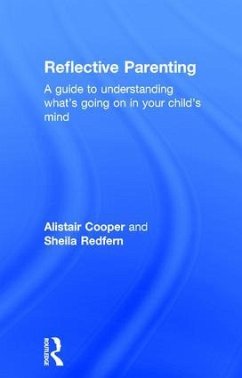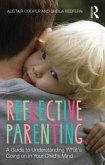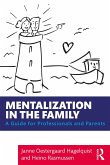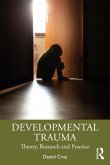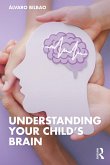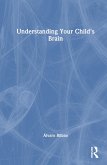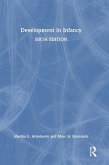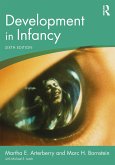"As a new parent, I found this thoughtful and beautifully written book not just immensely interesting but bursting with practical support. Reflective Parenting stresses how we can benefit our children's development by focusing on what we love doing best: feeling the enjoyment of relating to and being with our children! - Rosie Nixon, Editor Hello!
"Reflective parenting is turning out to be a key to mental health. This book really helps us understand what it involves in practice." - Sue Gerhardt, author of Why Love Matters and The Selfish Society
"If you want your kids to mentally flourish and be able to have a great life in a world that's gone insane then this book will tell you everything you need to know. It's the ultimate guide on how to be the parents you wished you had." - Ruby Wax
"While this book is aimed at parents, it is just as important for professionals working with parents to read. The authors offer sound advice throughout, and do so in an entertaining and perhaps even gripping style. There is a 'page-turner' quality to the book, which comes from the application of a key principle of reflective parenting: they arouse curiosity in the reader. You read and you want to find out what happens next. The curiosity is hopefully infectious - in the sense that curiosity about what is going on in a child's mind is what reflective parenting is all about." - Peter Fonagy, from the Foreword
"This exciting book is a welcome addition to other approaches to parenting, and it takes a new methodology to the task of bringing up children successfully. It proposes that a major aspect of the parenting task is explicitly to connect with what the child is thinking and feeling. The authors argue that this will not only make children feel understood, but crucially, will also help them understand their own feelings and therefore manage them better. The joy of such an approach is that it can easily be combined with other proven approaches to parenting such as sensitive responding to the child's needs, spending positive times together, and calmly setting limits when necessary." - Stephen Scott CBE, Professor of Child Health and Behaviour At The Institute Of Psychiatry, Psychology and Neuroscience, Kings College London; Director of the National Academy for Parenting Research
"In short, the authors have not given a cookbook for behavioral management for parents to use with their children. Rather, they have provided parents with a guide for developing their own self-awareness as well as their awareness of their childrens' thoughts, feelings, and motives. They have shown us the central importance of reflection in becoming the sensitive, responsive, and authoritative parents that our children need us to be." - Daniel Hughes, Author of Attachment-Focused Family Therapy Workbook (2011), Attachment-Focused Parenting (2009) and many other books and articles. He is in practice in Annville, PA, USA
"The thing I like about the Reflective Parenting book is that it's not a parenting instruction manual, it doesn't tell you how to parent your children, instead it helps you to be more aware of their needs and to think about what's going on in their heads at different times. It helps you realise how your own history and feelings impact on how you react to your children and their feelings. It's been hugely helpful to me in this transition period as we all get used to another little person in our home." - Corrine Hills, motherhoodjourneys.com
"Reflective parenting is turning out to be a key to mental health. This book really helps us understand what it involves in practice." - Sue Gerhardt, author of Why Love Matters and The Selfish Society
"If you want your kids to mentally flourish and be able to have a great life in a world that's gone insane then this book will tell you everything you need to know. It's the ultimate guide on how to be the parents you wished you had." - Ruby Wax
"While this book is aimed at parents, it is just as important for professionals working with parents to read. The authors offer sound advice throughout, and do so in an entertaining and perhaps even gripping style. There is a 'page-turner' quality to the book, which comes from the application of a key principle of reflective parenting: they arouse curiosity in the reader. You read and you want to find out what happens next. The curiosity is hopefully infectious - in the sense that curiosity about what is going on in a child's mind is what reflective parenting is all about." - Peter Fonagy, from the Foreword
"This exciting book is a welcome addition to other approaches to parenting, and it takes a new methodology to the task of bringing up children successfully. It proposes that a major aspect of the parenting task is explicitly to connect with what the child is thinking and feeling. The authors argue that this will not only make children feel understood, but crucially, will also help them understand their own feelings and therefore manage them better. The joy of such an approach is that it can easily be combined with other proven approaches to parenting such as sensitive responding to the child's needs, spending positive times together, and calmly setting limits when necessary." - Stephen Scott CBE, Professor of Child Health and Behaviour At The Institute Of Psychiatry, Psychology and Neuroscience, Kings College London; Director of the National Academy for Parenting Research
"In short, the authors have not given a cookbook for behavioral management for parents to use with their children. Rather, they have provided parents with a guide for developing their own self-awareness as well as their awareness of their childrens' thoughts, feelings, and motives. They have shown us the central importance of reflection in becoming the sensitive, responsive, and authoritative parents that our children need us to be." - Daniel Hughes, Author of Attachment-Focused Family Therapy Workbook (2011), Attachment-Focused Parenting (2009) and many other books and articles. He is in practice in Annville, PA, USA
"The thing I like about the Reflective Parenting book is that it's not a parenting instruction manual, it doesn't tell you how to parent your children, instead it helps you to be more aware of their needs and to think about what's going on in their heads at different times. It helps you realise how your own history and feelings impact on how you react to your children and their feelings. It's been hugely helpful to me in this transition period as we all get used to another little person in our home." - Corrine Hills, motherhoodjourneys.com

